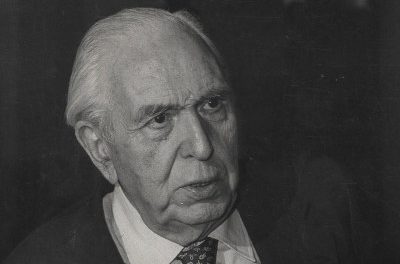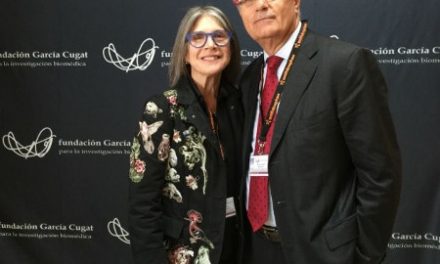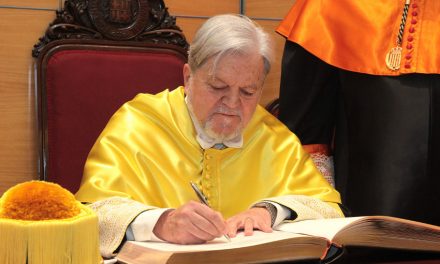The YouTube channel of the Royal European Academy of Doctors-Barcelona 1914 (RAED) already has the video summary of the admission act as a corresponding academician of Jesús Lafuente, doctor in Medicine and Surgery, which was held in Barcelona on October 4. The recipient read the admission speech “De la neurocirugía mística de la antigüedad a los retos que afrontan en el siglo XXI. Los cambios de paradigma según la evolución de la neurocirugía en el tiempo” (From the mystical neurosurgery of antiquity to the challenges they face in the 21st century. The paradigm changes according to the evolution of neurosurgery over time). Full academician Luis Carrière answered on behalf of the Royal Corporation.
In his presentation, the new academician makes an extensive review of the history of neurosurgery from its dawn and through the various civilizations fascinated with explaining the functioning of the brain and common concepts in all such as the soul or the spirit. “The Egyptians believed that the soul was lodged in the cerebrospinal fluid. The philosopher Anaximander said that the mind gave body to the force of life. Pythagoras said that the brain served as an organ of the mind and temple of the soul. Galeno insisted that the heart produced what he called ‘vital pneuma’, which would be distributed through the brain, giving rise to memory, knowledge, expression and imagination, extremes that Paracelsus also shared. So during the times of the ancient civilization there has been a great interest in the brain and the functions it performs, being the part of the body that contains more mysticism due to its great ignorance, which still persists today”, the academician begins his reflection.
In his detailed analysis of this complex medical specialty, Lafuente explains how neurosurgery as we know it today really began to take off as such from the late 19th century, when surgeons began performing cranial operations with greater guarantees assured with the appearance of anaesthesia, asepsis and more appropriate instruments. In this line highlights figures such as Victor Horsley, considered together with Harvey Cushing parents of modern neurosurgery. “Neurosurgery evolves exponentially during the 20th century, aided by crucial advances in neurosurgical fields such as anaesthesia, psychiatry, neuropathology and asepsis. The formation of intensive care centres dedicated to neurosurgical patients, specialized operating rooms, instrumentals suitable as coagulation systems and microscopes, allow to perform microsurgical procedures more safely”, says the author before pointing out the exciting challenges of this specialty in the 21st century in search of excellence.




